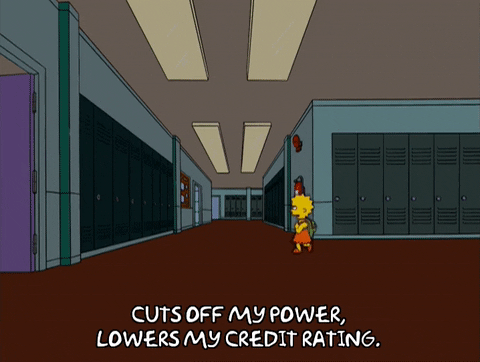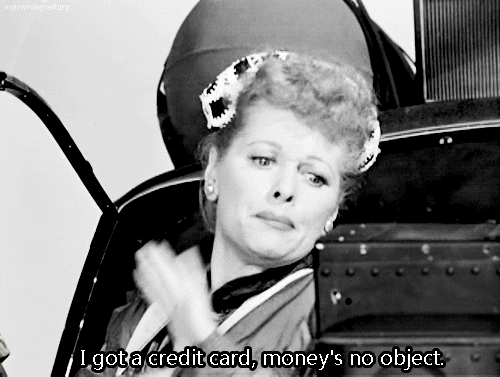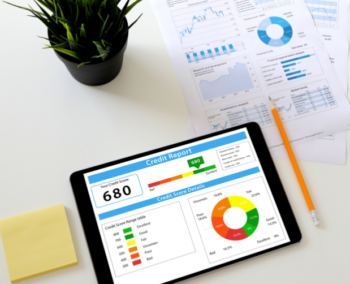
Credit agencies take a lot of different factors into account when calculating your credit score. And while each agency may have different criteria to work out that score, certain factors always remain the same. It’s important to know how your credit score works, particularly if you’re intending on taking out a loan or car finance in the future. Unfortunately, there are plenty of misconceptions out there about what affects your credit score. So the first step is being able to tell the difference between fact and fiction. With that in mind, we’ve compiled a list of the most common myths around credit scores and the things that don’t affect your credit score at all.
Your salary/income

Any information about your salary or how much you have coming into your bank account every month doesn’t make up part of your credit history.
So whether you have a high or low income doesn’t matter at all when it comes to calculating your score.
If you have a high income, you can still have a bad credit score if you have sizable debt or have a history of missing payments.
Likewise, if you have a lower income, you can have an excellent credit score if you manage your repayments well and keep your debt levels to a minimum.
It may not show on your report, but your income does play a role when you make an application for credit.
This is because the lender also looks at affordability. So whether it’s salary or savings, it’ll more than likely be part of the overall criteria the lender uses to decide whether to lend to you.
Checking your credit report

You can check your credit report 20 times a day and it won’t ever make a difference to your credit score.
In fact, checking your credit report regularly is important to ensure it’s up to date, all the information is correct and to understand anything you can do to improve your score.
Soft credit checks or searches
While checking your own credit report won’t affect your score, what can be reflected is searches that have been made by others.
This can include lenders following an application for credit, mortgage companies, banks and utility companies.
Each time a search is performed it’s recorded on your report for other organisations to see.
Apply for several lines of credit in a short space of time, and all these searches don’t only look bad, but they’ll likely make your credit score drop too.
A soft credit check or search – often used for quotations or identity checks – on the other hand, is recorded on your report, but only visible to you.
So this type of search will never affect your score. Here at Hippo Motor Finance, all our initial checks are soft, so you can find a lender without affecting your credit score.
Rates from 12.9% APR. Representative APR 18.9% We are a credit broker, not a lender.
*a hard search will be performed if you decide to proceed
Your bank or savings account


Your credit report exists entirely for three reasons – to help confirm your identity, to show your history of credit, and to predict your future pattern of using credit.
That means any accounts that are typically in debit, such as your bank or savings account, won’t show up on your report.
There’s an exception to the rule, however, and that’s if your bank account has an overdraft facility. As an overdraft is classed as a debt, it’ll show up on your report if it’s in use.
Your partner/people you live with


Who you live with or are married to doesn’t affect your credit score, nor would it be recorded on your credit report.
Others can only impact your credit score if you’re financially linked to them.
For instance, if you share a flat and hold a joint account with someone else for the bills, that person is considered a financial link to you.
If this person has a poor credit score, it can negatively impact yours.
Student loans


Student loans are not included in your credit report, as they’re deducted from your future income automatically with a fixed percentage after you graduate.
You also only start paying it back when you are earning over the set threshold.
The only way a student loan could affect your credit score is if you didn’t repay the loan.
At which point it could be marked on your report as a default and your score would reflect this.
Your address


One common myth is that living at an address where the previous occupants had a bad credit score will affect your own score.
It’s only your information that counts when it comes to your credit report, though.
Credit checks only take place on people and not addresses, so unless you have a financial link to the previous occupants, there’s nothing to worry about.
Distant credit history


The majority of information on your credit report is only held for around six years. If you missed a payment a decade ago, it’ll have since fallen off your report and won’t affect your score.
Lenders and companies also tend to focus on the most recent information So while a default or Debt Relief Order may stay on your report for several years, the more time elapses, the less important it’ll be when applying for credit.
Unpaid fines
Whether it’s library or parking, unpaid fines will not show up on your credit report. But if the unpaid fine ends up in court and you fail to pay a County Court Judgement (CCJ) within the allotted time, this will then be documented on your report and can severely lower your credit score.
What does affect your credit score?
Now you know the most common things that don’t affect your credit score, it’s important to find out what does.


















